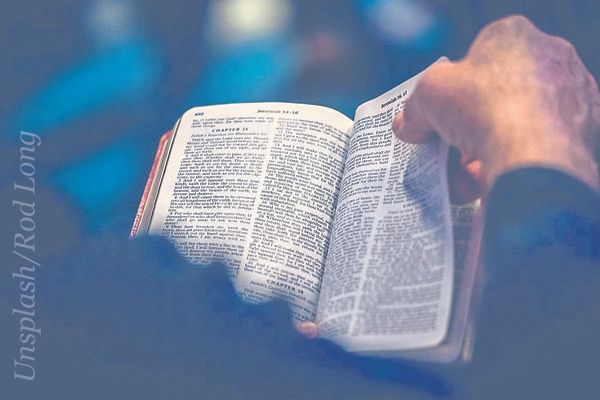‘I hate Christmas’ John responded. I felt guilty. I had been making small talk with him before I departed to see my next patient (I see patients in their own homes). I should have remembered that he had no family, at least none in regular contact. I might have noticed that not only did he have no Christmas decorations in his house but no Christmas cards either. He was no Ebenezer Scrooge shouting ‘Bah! Humbug’ at everyone. He was lonely.
His only visitors were from social services and even these dropped off over the festive period and his day centre closed. Christmas meant two weeks stuck in his house with (virtually) no human contact. His paper was packed with adverts encouraging him to buy presents and Christmas food and drink. His TV (his usual company) was filled with programmes reminding him what he couldn’t have. Of course there are many lonely people like John for whom Christmas is not a time of good cheer.

Festive stress
For the rest of us the Christmas period is a busy one. We spend the preceding weeks sorting out the presents, wrapping and despatching them, writing Christmas cards and letters, planning and purchasing the food and drink and sundry other items deemed necessary to tide things over. We arrange complex webs of travel and visits to family and friends.
As the holiday period approaches there are ’the religious bits’ for some of us. And then we rush on into the maelstrom. We begin tired by these extra burdens and desperate for a rest, only to find ourselves on stressful journeys, stuck in one traffic jam after another, desperately hoping our SatNav can find a quicker way through, or packed into railway carriages without seats and enough air.

On arriving exhausted we are crammed into houses not built for so many people. We jostle along with relatives we would rather avoid. Irritating patterns of behaviour in our children/parents/siblings return to haunt and provoke us. Arguments erupt. Fights flare. Tears flow.
And then we miserably go on to the next leg of our annual festive marathon. We finally stagger into the New Year full of regrets. We feel guilty at relationships damaged, often beyond repair, humiliated by our extra fat and struggling with debts brought on by the excess. How often have you heard people returning to work in the New Year expressing their relief that it is all over?
Restoring the real Christmas?
It is said to be a truism that we have lost the real meaning of Christmas. Perhaps it is. But it begs the question as to what the true meaning of Christmas actually is? Many Christians would say that if we could restore the true meaning then all would be well.

For Christmas is about the baby in the manger and the shepherds and the wise men. It is about peace and goodwill to all men. It is about carol services and nativity plays and thus about restoring community. If we could restore this ‘real Christmas’ then people wouldn’t be lonely like John and wouldn’t be caught up in our crippling consumerism and high-pressured rush.
But this romantic view of Christmas is not quite what is taught in the Bible. It confuses the side effects with the real purpose of Christmas.
Gospel effects and side effects
When I prescribe antidepressants for a patient, we discuss the pros and cons. I explain the rationale for using this drug, its benefits and side effects and respond to questions. It is clear that my purpose in prescribing is to improve my patient’s illness. I don’t prescribe to cause the side effects (after all this is why they are called side effects isn’t it?). Too often though, the Christian meaning of Christmas in the Bible has been reduced to the side effects.

The birth of Jesus Christ in the manger at Bethlehem was a momentous event. But it was only a means to an end, not the end itself. It is an essential part of what we call the gospel, the good news of salvation, but not itself the gospel. At the beginning of the New Testament in the Bible we are told the purpose of Jesus’ birth and thus of Christmas: Jesus will save his people from their sins (Matthew 1:21).
It was necessary that Jesus Christ, the Son of God, was born as a human being because he came to die as a human to take the punishment which we as sinners deserve. By his death he gives us eternal life with God, he saves us from the just punishment our sins deserve and grants us entry to heaven. This is the great gospel purpose. And as with prescribed medication it has ‘side effects’.

A side effect of becoming a Christian is we join a local church and become part of a wonderful family. And so we are relieved of the misery of loneliness. And a side effect of being saved by Jesus is that we change our life priorities: we are freed from the pressure to join in the mayhem of the Christmas period; freed from feeling we must buy the latest (and often the most expensive) presents for our children and so freed from Christmas debts; we experience no pressure to eat and drink and party like the rest. These gospel side effects are rich blessings to us but they are not the real purpose of the gospel. They are not the real meaning of Christmas.
And like drug side effects it is not guaranteed. As Christians we may live alone and have periods of loneliness. We might not be able to escape the stress and exhaustion of Christmas travel and visits. That is why it is so important to distinguish the true purpose of Christmas from the side effects. Jesus did not come into the world to relieve his people from the loneliness and miseries of twenty-first century Christmas. He came to save his people from sin and take us to heaven, which is much better by far.
Alan Thomas is Professor and Consultant in Psychiatry and elder at Newcastle Reformed Evangelical Church.










